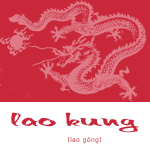The women indignantly commented on how 'wrong' it all was. First of all the lesson was in a dingy community hall (there were no pagodas, weeping willows and manicured gardens), the students looked like 'a bunch of misfits' and her legs were stiff the next day! She finished her post by commenting that if one is to do Tai Chi, one has to do it 'properly'. A whole host of people then all agreed with her.
Although I don't know the teacher or venue in question, all I can say is that one will never discover the essence of Tai Chi with preconceptions like that. As much as I agree that Tai Chi should be practised properly, my suggestion would be to do some proper research on Tai Chi in something other than a tourist brochure or a Jet Li movie.
If I've learnt one thing from years of practice its that Tai Chi is not about artifice, silk pajamas and pretense. Its about discovering your self nature and doing away with the ego and any form of preconception or judgement. If you'll excuse me being crude for a second, you are more likely to find enlightenment meditating in a stinky public urinal than on a Himalayan hilltop. In other words, if your environment is difficult or unpleasant it motivates humans to push forward and transcend or improve their environment. If its too pleasant humans get lazy and complacent.
Through the study of self nature, meditation or Tai Chi, society and individuals bloom and it is expressed through all the wonderful art, culture and architecture that can still be found in the east. However starting with the expression of an art form instead of the sincere practise, study and search for its essence won't amount to anything.
